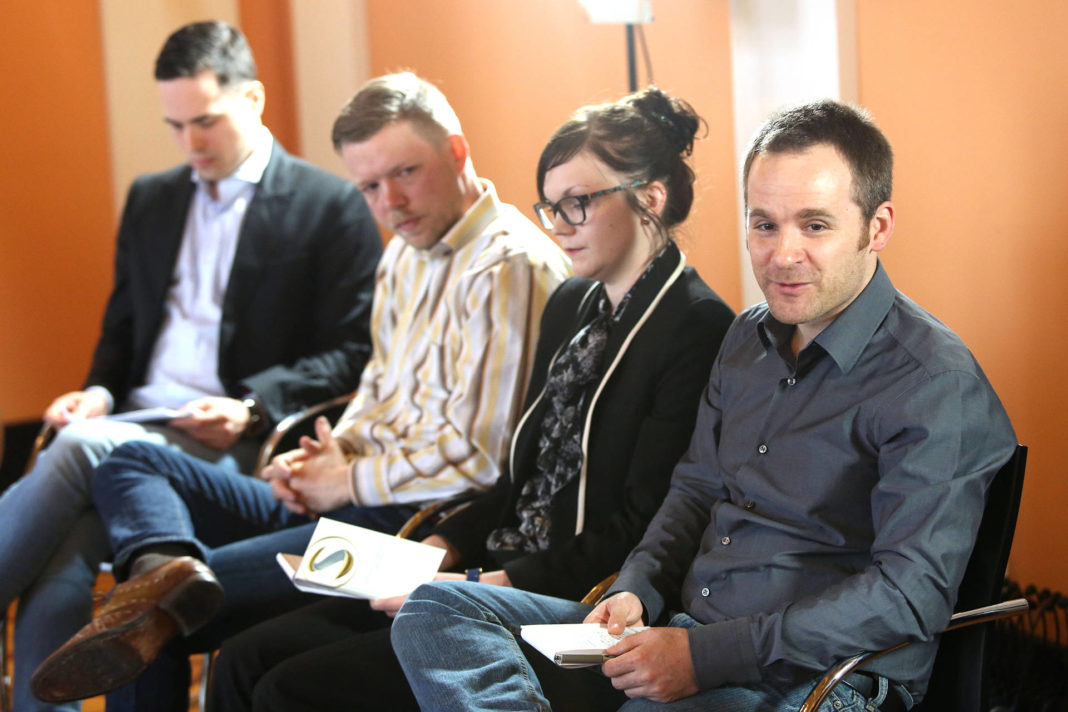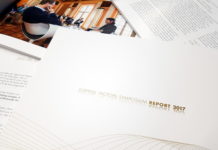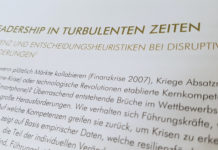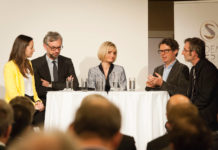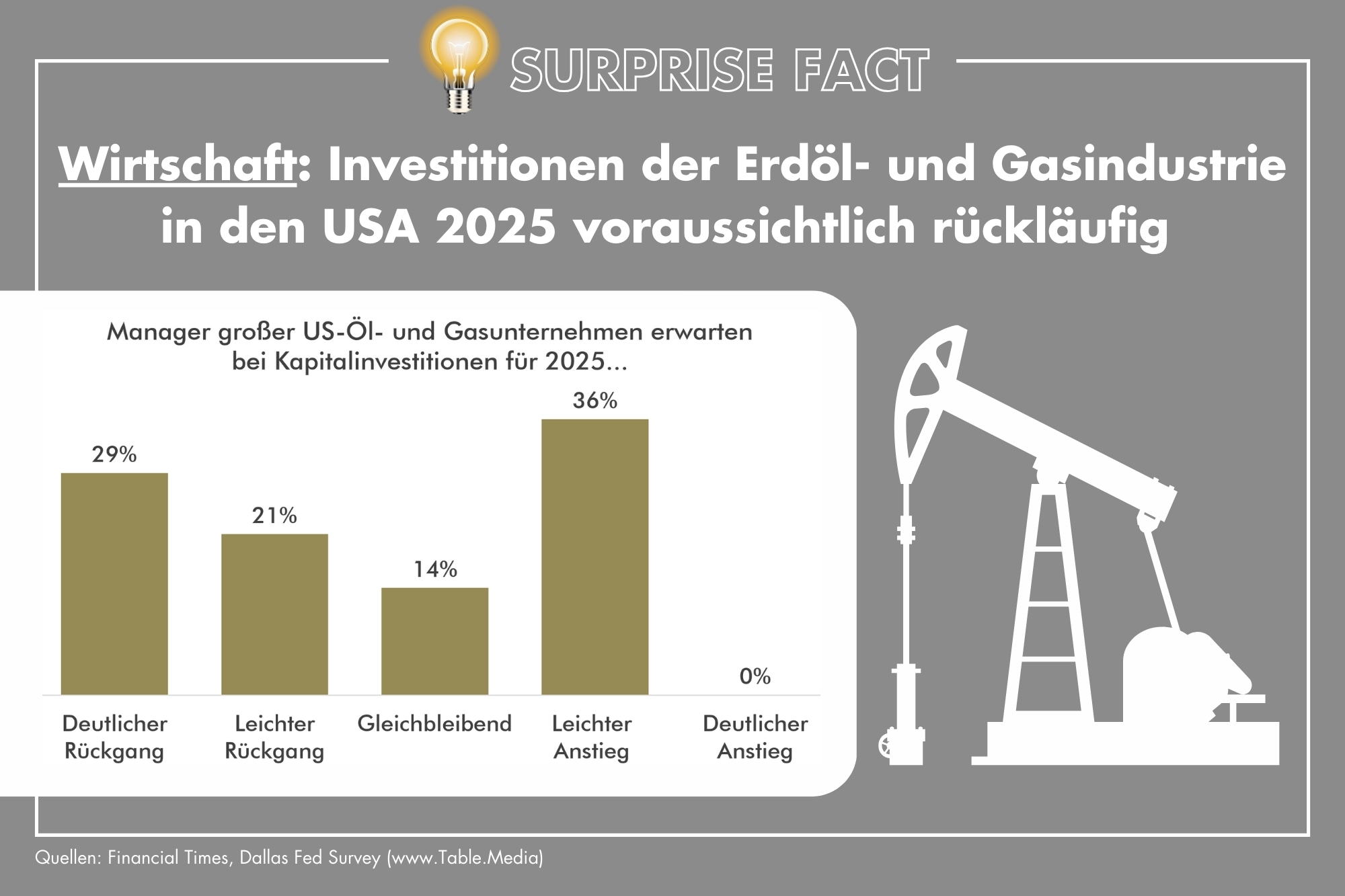In forefront of the SURPRISE FACTORS SYMPOSIUM, students from various disciplines gathered together to discuss our this year main theme „Beyond Borders — The Strength to Emerge from Crises“. Six of them brought the view of the young generation into the discussions between experts, politicians and the members of the scientific advisory board of ACADEMIA SUPERIOR.
Four areas appeared to be particularly relevant for Upper Austria’s future in their opinion:
1. Ageing Society and Welfare State
The welfare state will, especially in rural areas, may reach soon its limits. In Upper Austria, the rural areas will also be more affected from the demographic processes in the next thirty years than the Austrian average.1 There exists a risk that the villages will lose not only their youth but also that their local infrastructure will collapse. How can you ensure the care for elderly citizens, if there won’t be enough young people in some areas?
People in old age should be more encouraged to get involved, to work and to take more responsibility. It is necessary to develop sustainable concepts for the coexistence of generations and to open up more opportunities in the rural areas for the young generation. The broadband initiative of Upper Austria is a step in this direction, because when communication and data exchange in rural areas is more possible, there will be new job opportunities.
2. Mobility and Climate
In order to overcome existing barriers in Upper Austria and between Upper Austria and its neighbouring regions, it needs more mobility. It seems important that the difficult traffic situation in the Upper Austrian Zentralraum gets solved and more traffic connections are made to the north of Upper Austria and beyond its borders. It is important to link the urban and rural areas through environmentally sustainable transport concepts. Before new motorways are built, public transport should be expanded first and new mobility concepts have to be developed. If alternative mobility options are made available first, perhaps the mobility-preference of the people will shift from the motorised private transport to other possibilities.
3. Science and Humanity
The opportunities and risks of new biotechnologies must be discussed openly and wide, so that we don’t lock ourselves the possible arising opportunities. The young field of biotechnologies will soon see some major breakthroughs in research and these will, with no doubt, have a great impact on our lives. However, we should be clear what understanding or picture of humanity we want our society to represent, before we let those new technologies, such as prenatal diagnosis, in-vitro-fertilization and cloning, penetrate into our lives.
4. Democracy and Politics
Our political system is unmistakably going through a period of a profound change. We must ensure that these changes do not lead to a crisis of our democracy. Political processes at the European, national and regional level should be made more transparent and understandable, to reduce the distance between citizens and politics. The citizens must get more interested in politics again. But this will only happen if we give them more opportunities to participate in the decision making process.
More direct democracy could be ventured on the local community level — as a learning field for the society to find out if such processes could be implemented at higher levels of administration. Especially the young generation must be encouraged to leave their comfort zone and get involved in this process. To prepare the youth for this task, it is necessary to implement more political education at an earlier level in schools.
Resilience of society and the younger generation
One of the keywords, which is currently on everyone’s lips, is „resilience“. The term describes how well a system can respond to changes and ensuing crises. But how can we improve the resilience of our society, to make it more crisis-resistant and sustainable? This is a challenge we only can respond if we run an open dialogue involving all parts of society. For the question of how the future will look like, affects mainly the young generation and therefore all generations need to work together.
However, a key aspect of resilience seems to be the state of the education and research system in a society. Only when one has information about the running processes, can we respond timely. And only when people get good education, they will be able to develop the right ideas to deal with the limit experiences of the future.
Quotes
- „Peace is a process, never a state.“
- „Linz should set itself the ambitious aim of catching up with Vienna in terms of quality of life.“
- „We should stop burying our heads in the sand when it comes to biotechnology.“
- „People do not know exactly what limits will be exceeded by the new biotechnologies.“
- „We need a contest for the best ideas.“
- „We have left the welfare state a long time ago and have gone on to a providing state.“
- „The current crisis is also an extreme chance to change things and to venture new beginnings.“
Connecting Points for ACADEMIA SUPERIOR
Points for further discussions
- Can we integrate the young generation better in the political process?
- How do you reduce the primacy of private-car-based mobility in Austria?
- How to react to the ageing in rural areas and the rural brain drain?
- Tools for further development
- Integration of wider parts of the society in the political process at local levels (direct democracy at the community level?).
- Promote initiatives for the living together of generations, particularly in rural areas.
- Education and knowledge as a key factor for the resilience of a society
Note:
We are planning a common event with the Gymnasium Dachsberg in the fall of 2014 on the topic „Over the Borders to Paradies — EU case immigration“.
(1) See: Academia Superior (ed.), Future Field: Upper Austrian Leading Companies and Headquarters. Challenges for the working world of tomorrow: Key force, Flexibility and Skill. Summary of the first dialogue conversatioin. Linz 2013, p. 5.


